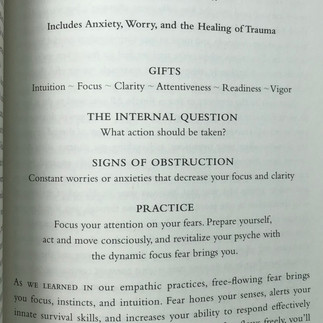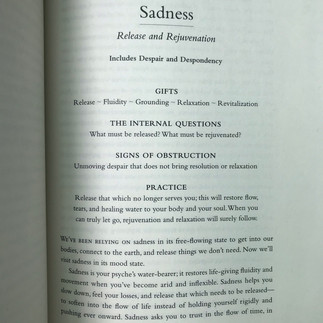Understanding thoughts and emotions that drive behavior
- Alahnnaa Campbell
- Jul 8, 2023
- 5 min read
Updated: Mar 2
This article has evolved and may continue to do so over time...
It's so easy for me to assume that everyone hates me because I speak my truth, but thinking this way doesn't serve me, or anyone else. How we speak to ourselves determines how we feel and act, and this has a direct link to our multidimensional health. In truth, I am someone who spends a lot of time making things to try to help others, because doing so also creates things that help me.
Here is a tool/process that I am working with (for me and my kids):
...which can be used with these "cards":

...which can be made using:
...which I was able to create, by integrating how the following apps categorize feelings and needs under major headings:
I find the Check-In App (above) particularly useful (for me and my kids) to create sentences that describe how we feel, why, and what we could request from others, to improve our relationship and make life more enjoyable.
Not everyone is ready to meet our requests to satisfy our needs, and that's ok. Often this is because they don't feel like it is a request (which means they can say no) or they may feel like we haven't listened to their feelings and needs enough. Often people don't even know how to make a request, because this is something few of us are taught.
Sometimes the door is not open for us to hear what other people feel and need, but we can still learn why we feel the way we do, and try to understand where others may be coming from, and this alone can shift how we work with others, which allows us to feel better and have the opportunity to try new things, to see what works, which allows us to grow.
We all have the same feelings and needs, and this is why this process works. Simply reading the cards from time to time can expand our vocabulary for feelings, needs, and judgements, which can help us identify and describe our experiences in more precise detail.
The creator of the apps above, made the following request, for people who share their work (it's nice to read how someone can make requests in a respectful way):
These are some of the suggestions we received from ROCK (Reach Out Center for Kids):
- after watching a show, talk about how each character may feel, to become more aware that everyone has emotions, and how emotions can provide useful information
- another form of "watching a show" could be, do you see yourself (or your friends) in any of the situations in this show? elaborate over time...
- try telling "the story each person may have in their head" about a specific situation, to see that we can all see the same thing differently, and how "the story we are telling ourselves" can really drive how we feel and how we respond to each other
- role play challenging situations, to try to build confidence, for speaking our needs, so that situations can have a different outcome, which may be better, or which we can at least learn from
- another form of role playing would be to ask "how do you think X would handle this situation?"
- write private affirmations or reminders like "just because the other person doesn't understand what I am trying to communicate with them, it doesn't make me a liar" or "sometimes how someone treats me has more to do with what is going on in their body/head/life, and less to do with what they are saying about me"
- think about the key ingredients for a good friendship stew, a stew/friendship is built over time, we slowly build the flavors, how can you tell if the stew is good or not, what do we do when the stew is not good, can we sometimes do some things to fix it, and sometimes do we need to throw the stew out?
- with friends, try giving them breadcrumbs at first, things we don't care if everyone knows, and see if they can be respectful with that, before we attach and give them our whole heart to be broken
- have recharging opportunities throughout the day, i.e., a card from an oracle card deck that we like that mom places in our book as a surprise for any time we need a connection to how much mom loves me that is switched out every time we let mom know we saw the card, a way to dump what is happening, so we can continue with our day and talk about it later, a reminder of our values, that we are loved, what we are working on etc.
- when things happen, try to tease out the different emotions we are feeling, so we can deal with them one at a time
In addition, knowing how our emotional (and decision making) system works and interacts with others is very helpful! See Human Design and the video below.
The idea behind journaling is to problem solve new ways, but also to learn to see life through the lens of "hey, this is something I could journal about (good or bad) and this is an opportunity to try something new", creating a gap between trigger and reaction, to bring awareness to the choices we are making.
None of us are bad. We are all doing the best we can to meet our needs. And we could benefit from learning to talk to ourselves in a kinder way, so we can feel better, which gives us more room to choose ways to work with others, with more awareness of how they may feel and what they may need. The goal is to try to find better solutions that meet both our needs.
I think the concept of the Dance Floors (in the app above) is great, to see how we can move through different perspectives. I inquired about their dance floors for shame and anger, but never heard back.
This presentation is also helpful: Mean Girls (and Boys!): Why Young Children Act In Unkind Ways and How To Help, Claire Lerner, LICSW - Early Childhood Webinars see this article for more: Summary of Why young kids act in unkind ways and how to help (yourlifeplan.ca)
And here are the chapter headings for an excellent book about emotions: The Language of Emotions (Book and E-book) | Karla McLaren:
For more about NVC and how mainstream school/society teaches us to be violent (jackal language) and how we can choose to be kind (giraffe language) check out these book titles and read whatever book resonates with you, as they are all the same, but shared through the lens mentioned in the title: https://www.nonviolentcommunication.com/about-marshall-rosenberg/books-and-products/
And here are the summaries that are in most of the NVC books:
Here are some other tools that I really like for understanding our emotions:
Here is the summary of strategies from a book that is healing for anyone:
This free process is always available: RaisingConsciousnessApp
And here is a video that describes how we may have different emotional systems and how understanding our emotional wave(s) can help us know when we are able to make informed decisions:
I'd love to hear how these tools/processes work for you!
































Comments